The evolution of remote work has transformed how businesses operate, making seamless connectivity a crucial component for success. Managed Service Providers (MSPs) play a vital role in facilitating this transition. Here’s how MSPs can ensure seamless connectivity for remote work:
Robust IT Infrastructure
A. Cloud Solutions
- Cloud Services: MSPs can help businesses migrate to cloud platforms, ensuring that data and applications are accessible from anywhere.
- Scalability: Cloud solutions can be scaled up or down based on the business needs, providing flexibility for remote work.
B. Virtual Private Networks (VPNs)
- Secure Access: Implementing VPNs ensures that remote employees can securely access the company’s network.
- Data Encryption: VPNs encrypt data transmitted between remote devices and the company network, protecting sensitive information.
Unified Communication Tools
A. Collaboration Platforms
- Integration: MSPs can deploy and integrate collaboration tools like Microsoft Teams, Slack, or Zoom, enabling effective communication.
- Customisation: Tailoring these tools to fit specific business needs ensures maximum efficiency.
B. VoIP Solutions
- Internet-Based Calls: VoIP allows employees to make and receive calls over the internet, reducing costs and enhancing connectivity.
- Advanced Features: Features like call forwarding, voicemail-to-email, and conference calling support remote communication needs.
Cybersecurity Measures
A. Endpoint Security
- Device Protection: MSPs can implement endpoint security solutions to protect devices used by remote workers from malware and cyber-attacks.
- Regular Updates: Ensuring that all remote devices are regularly updated with the latest security patches.
B. Multi-Factor Authentication (MFA)
- Enhanced Security: MFA adds an extra layer of security, making it harder for unauthorised users to access the network.
- User Training: Educating employees about the importance and usage of MFA.
Remote Monitoring and Management (RMM)
A. Continuous Monitoring
- Proactive Maintenance: MSPs use RMM tools to monitor network performance and detect issues before they affect remote workers.
- Real-Time Alerts: Immediate notifications of any potential problems allow for quick resolution.
B. Support and Troubleshooting
- Help Desk Services: Providing remote support to troubleshoot and resolve IT issues faced by remote employees.
- 24/7 Availability: Ensuring that support is available around the clock to accommodate different time zones.
Data Management and Backup Solutions
A. Regular Backups
- Automated Backups: MSPs can set up automated data backup systems to protect against data loss.
- Disaster Recovery Plans: Developing comprehensive disaster recovery plans to ensure business continuity in case of data breaches or system failures.
B. Secure File Sharing
- Encryption: Ensuring that files shared between remote workers are encrypted to protect against unauthorised access.
- Access Controls: Implementing access controls to ensure that only authorised personnel can access sensitive information.
Optimized Network Performance
A. Bandwidth Management
- Traffic Prioritisation: MSPs can prioritise network traffic to ensure that critical business applications receive the necessary bandwidth.
- Load Balancing: Distributing network traffic evenly across servers to prevent overload and ensure smooth performance.
B. Quality of Service (QoS)
- Performance Optimization: Implementing QoS policies to optimise network performance and reduce latency, jitter, and packet loss.
- Monitoring Tools: Using advanced monitoring tools to track network performance and make necessary adjustments.
Employee Training and Support
A. Training Programs
- Onboarding: Providing comprehensive training for new remote employees on how to use the company’s IT resources and tools.
- Ongoing Education: Regular training sessions to keep employees updated on the latest technologies and security practices.
B. User-Friendly Documentation
- Guides and Tutorials: Creating easy-to-understand guides and tutorials for common IT tasks and troubleshooting.
- FAQ Resources: Developing a comprehensive FAQ resource to address common issues faced by remote workers.
Conclusion:
The evolution of remote work requires businesses to adopt new technologies and strategies to ensure seamless connectivity. MSPs are pivotal in this transition, offering expertise in IT infrastructure, unified communication tools, cybersecurity, remote monitoring, data management, network optimisation, and employee training. By leveraging the services of MSPs, businesses can create a robust and secure remote work environment that enhances productivity and connectivity.


